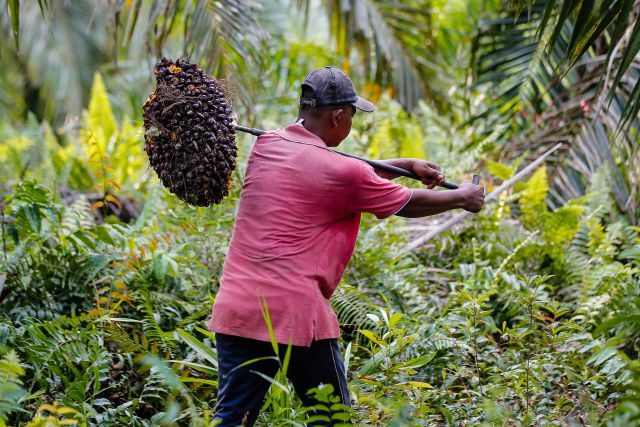Food and Drugs Authority in partnership with Artisanal Palm Oil Millers and Outgrowers Association of Ghana will begin a two-week digital training program for oil palm processing producers to enable them to attain high-quality oil palm production in the country.
The project will equip participants with the expertise and knowledge to ensure that finished products meet both local and international market standards.
The Training will help Millers and Processors in the Food Safety and Progressive Licensing Program by the FDA Registration of Millers and processors for product traceability.
Under the partnership, the Artisanal Palm Oil Millers and Outgrowers Association of Ghana, FDA, would train 1000 artisanal mill owners and over 3,000 machinery fabricators and processors, to promote high-quality food safety standards among artisanal palm oil producers.
The program schedule for the training activities will start is as follows:
23rd May, 2022 at Boadua ,Kade: 24-25 May ,Asuom:26th May,New Abirem :27th May. Akokoaso: 28th May/Juaben:30th May, Twifo Prado:1st June 2022/Twifo Heman: 2nd June 2022, Daboase;3rd June.
The collaboration will strengthen, monitor and enforce standards in the preparation and sale of palm oil. A release issued by Artisanal Palm Oil Millers and Outgrowers Association and copied to Kingdom FM on Wednesday said the FDA was statutorily mandated to work with the Outgrowers Association, to monitor and enforce standards for the preparation and sale of food products in the country.
Artisanal Palm Oil Millers and Outgrowers Association, on the other hand, through its Sustainable Palm Oil Programme, had been working to transform the oil palm sector in the country by promoting best management and milling practices.
The release explained that under the partnership, a training programme, on food safety and good manufacturing practices in the palm oil production process would be held for workers in the value chain.
It would cover topics such as hygienic sterilisation and identifying food safety hazards during processing, the use of potable water for palm oil processing, waste handling, test management techniques, cleaning and siting of milling equipment, and personal hygiene of workers at the mills, among others.
The release quoted Mr President of Artisanal Palm Oil Millers and Out-growers Association, Paul Amaning saying that a substantial part of Ghana’s palm oil imports could be sourced locally from artisanal palm oil producers if they met the quality requirements of both industrial users and palm oil exporters.
The requirements, he said, included palm oil with low free fatty acid below five percent, low rancidity (having the right taste, smell and color), and had no physical, biological or chemical contaminants.
“We expect that our two organizations would pull resources together to support artisanal palm oil producers to meet the FDA requirements,” he said.
He opined that his organisation was pleased with the partnership, and expressed the hope that the collaboration would equip artisanal oil palm producers to process safe and quality products.
He added that food hygiene and safety should be a core element of all food preparation processes, including palm oil, hence the need for processors to obtain and regularly update their knowledge in food safety and good manufacturing practices.
The programme seeks to contribute to the transformation of the oil palm sector in Ghana, increase the incomes of smallholder farmers and processors, and generate economic growth and jobs to build sustainable production for oil palm and other commodities.

